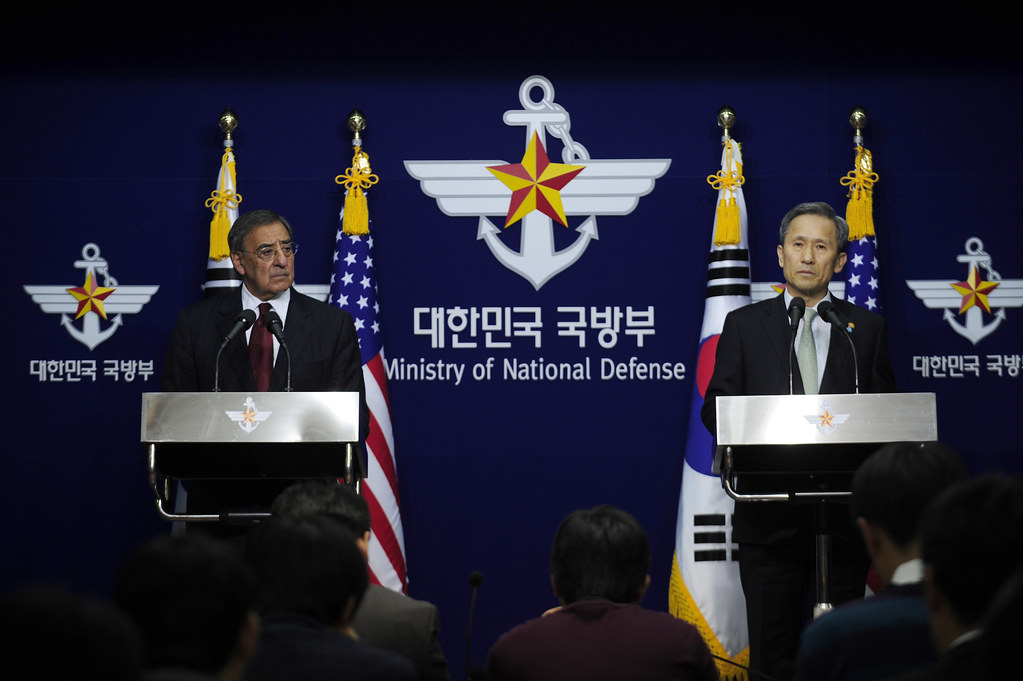 |
| Image: Flickr User - Ash Carter |
By Clint Work and Daniel A. Pinkston
When tensions rise, history illuminates U.S. and ROK fears of entrapment and abandonment.
Alliance tensions over abandonment and entrapment fears come sharply into focus at times of conflict escalation or the possibility of escalation. Therefore, understanding escalation dynamics and the processes for de-escalation and the restoration of deterrence is an important aspect of U.S.-ROK alliance management. The DPRK’s recent nuclear test, SLBM ejection tests, and advancements in other asymmetric capabilities such as cyber-warfare make escalation management more complicated and difficult for the alliance.
Before examining escalation problems in the current context of the DPRK’s growing asymmetric threats, it is helpful to understand the historical lessons of past escalation episodes and how they affected fears of abandonment and entrapment over time.
Read the full story at The Diplomat
